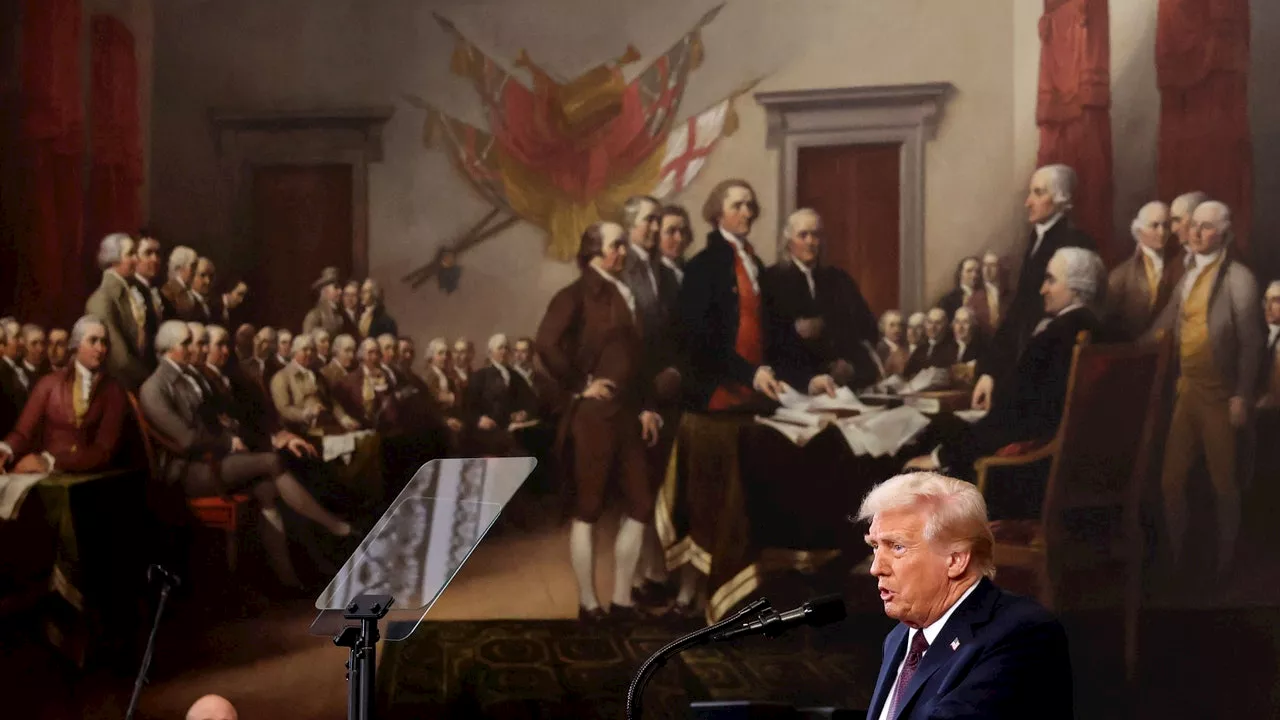This article examines the dangerous trajectory of Donald Trump's presidency, drawing parallels with past American leaders accused of exceeding their constitutional bounds. It argues that Trump's disregard for norms, his attacks on the judiciary, and his efforts to consolidate power pose a significant threat to American democracy.
Now Trump has reassembled just such a coalition for the Republican Party, even as he works to dismantle the administrative state that grew directly from Roosevelt’s New Deal. It was Roosevelt’s frenetic “first 100 days” that carved the roughly three-month benchmark as a measure of presidential action and ambition. Today, Trump is moving at a comparable pace, trashing laws and norms in service of his vision of a reimagined America—one that many see as an authoritarian state.
Like Trump, the most commanding chief executives in American history have been accused of having kingly ambitions and operating unconstitutionally—Roosevelt, for sure, but Abraham Lincoln too, whose constitutionally dubious Emancipation Proclamation was, like Trump’s earliest moves, an executive order. But neither Lincoln nor Roosevelt approached the self-righteous behemoth before us now: a president who sees himself as above all law (thanks, in large part, to a right-leaning Supreme Court supermajority); as divinely chosen, saved by God from a would-be assassin’s bullet; and as a modern savior, delivering “his people” to the promised land resembling an America that never was. “They’re not coming after me,” he declared after being indicted in the now dismissed classified-documents case. “They’re coming after you, and I’m just standing in the way.” Yet has Trump ever manically promoted someone else’s interests more than his own? Trump’s monarchical designs would certainly have rankled the nation’s founders. They mounted a revolution to get out from under the thumb of the British crown. Successful, they then faced the arduous task of deciding what kind of government fit the aspirations of the American experiment. At the 1787 Constitutional Convention, Edmund Randolph dreamed of a government that befit the “fixt genius of the people of America,” per notes taken by James Madison. James Wilson urged his fellow delegates to craft a system that, “instead of being the fetus of monarchy, would be the best safeguard against tyranny”—for having been subject to tyranny, the Framers feared it most. Madison pressed the convention to set some powers of the executive in a position dependent on the will of the legislature. So what would Madison say now to a Congress that has effectively ceded the legislature’s constitutionally mandated power of the purse to Elon Musk and other Trump officials looking to squeeze funds appropriated by Congress for policy initiatives—particularly funds for efforts that Trump does not favor, including virtually the entirety of American foreign aid, which Musk proudly claimed he was feeding “into the wood chipper”? Senator Thom Tillis of North Carolina acknowledged that all of this “runs afoul of the Constitution in the strictest sense.” He added, however, that “nobody should bellyache about that.” This, from a member of the party that has long advocated for a “strict constructionist” view of the Constitution. And how would the Framers have reacted to Vice President JD Vance, who on Sunday—in response to judges’ orders to halt a raft of Trump-approved actions, including one giving Musk’s minions widespread access to Treasury Department data—posted a strident broadside against the judiciary branch, stating that “judges aren’t allowed to control the executive’s legitimate power”? Trump declared much the same, insisting, “No judge should, frankly, be allowed to make that kind of decision.” The administration’s lawyers have followed with a legal salvo that pits the purported interests of the executive branch against those of the federal judiciary and a group of attorneys general. And on Monday, by Politico’s count, “five different judges around the US issued temporary blocks on five different Trump-ordered executive actions.” A constitutional crisis, some legal scholars believe, may already be at hand. As they crafted the Constitution, the delegates in Philadelphia knew who the nation’s first president would inevitably be. George Washington, even then, was viewed as the “father of the country.” He was, as historian James Flexner called him, America’s “indispensable man.” Being used to life under a monarch, the new nation’s citizens were, at first, tempted to treat Washington like one. His image was everywhere in 1790s America, and the mythology surrounding him had, as historian Joseph Ellis put it, “grown like ivy over a statue, effectively covering the man with an aura of omnipotence, rendering the distinction between his human qualities and his heroic achievements impossible to delineate.” Even Vice President John Adams, serving under Washington, showed himself vulnerable to such infatuation when he floated the idea that the president be referred to as “His Highness” or “His Majesty,” making himself the target of jokes—including the jibe that Adams, with his ample girth, should thereafter be referred to as “His Rotundity”
DONALD TRUMP AUTHORITARIANISM AMERICAN DEMOCRACY CONSTITUTIONAL CRISIS EXECUTIVE OVERREACH JUDICIAL BRANCH CONGRESS ELON MUSK SUPREME COURT GEORGE WASHINGTON
United States Latest News, United States Headlines
Similar News:You can also read news stories similar to this one that we have collected from other news sources.
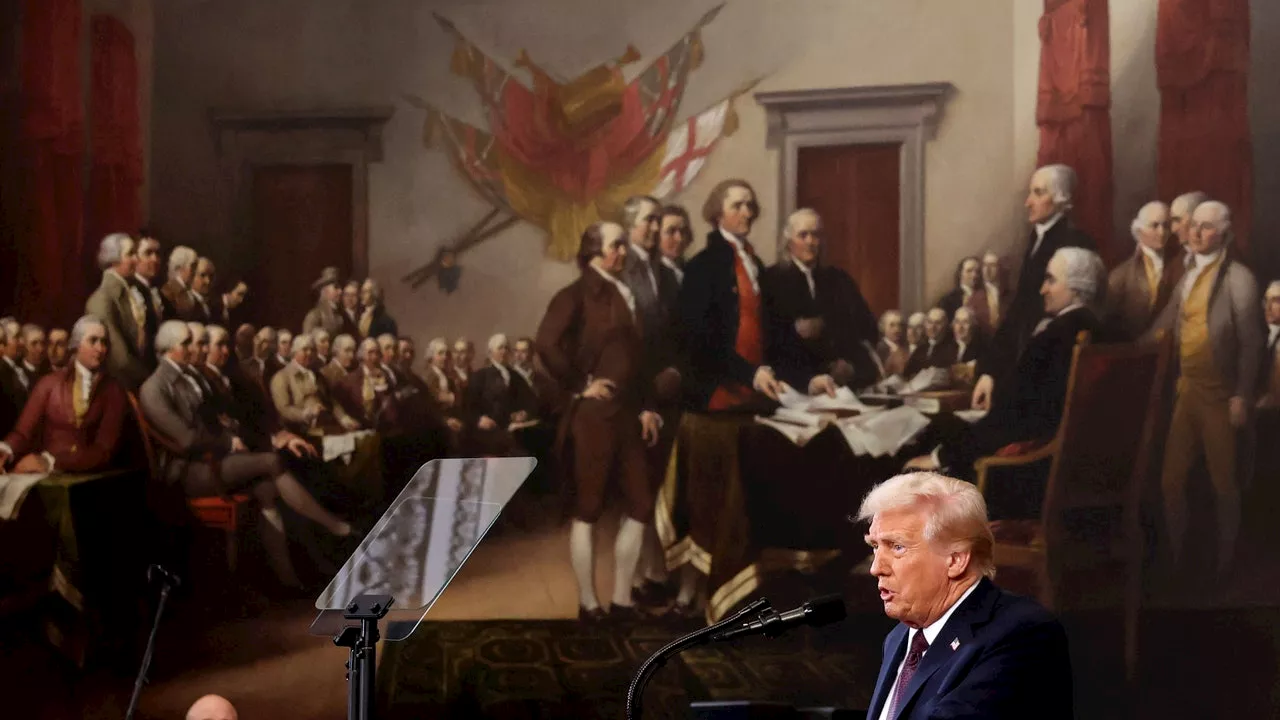 Trump's Authoritarian Ambitions: A Test of American ConstitutionalismThis article explores the parallels between Donald Trump's presidency and those of historical figures like Roosevelt and Lincoln, who also faced accusations of exceeding their constitutional powers. It highlights Trump's self-proclaimed authority, disregard for norms and laws, and his vision of America as a reimagined, potentially authoritarian state. The piece also examines how Trump's actions, such as ceding legislative power to individuals like Elon Musk, and his administration's challenges to the judiciary's authority, raise concerns about a potential constitutional crisis.
Trump's Authoritarian Ambitions: A Test of American ConstitutionalismThis article explores the parallels between Donald Trump's presidency and those of historical figures like Roosevelt and Lincoln, who also faced accusations of exceeding their constitutional powers. It highlights Trump's self-proclaimed authority, disregard for norms and laws, and his vision of America as a reimagined, potentially authoritarian state. The piece also examines how Trump's actions, such as ceding legislative power to individuals like Elon Musk, and his administration's challenges to the judiciary's authority, raise concerns about a potential constitutional crisis.
Read more »
 Greenland's PM rejects Trump's Greenland acquisition aspirationsGreenland's Prime Minister, Múte Egede, has stated that Greenlanders do not want to be Americans and have no desire to be part of the United States. He emphasized Greenland's desire to remain a part of NATO and maintain strong partnerships with the U.S. and the European Union, particularly for economic diversification and investments in Greenland's mineral resources. Egede's comments come after President-elect Trump expressed interest in potentially acquiring Greenland, citing its strategic importance for U.S. national security.
Greenland's PM rejects Trump's Greenland acquisition aspirationsGreenland's Prime Minister, Múte Egede, has stated that Greenlanders do not want to be Americans and have no desire to be part of the United States. He emphasized Greenland's desire to remain a part of NATO and maintain strong partnerships with the U.S. and the European Union, particularly for economic diversification and investments in Greenland's mineral resources. Egede's comments come after President-elect Trump expressed interest in potentially acquiring Greenland, citing its strategic importance for U.S. national security.
Read more »
 AOC launches inflammatory rant against Trump leading up to inauguration; 'Eve of an authoritarian administration'Today's Video Headlines: 01/19/25
AOC launches inflammatory rant against Trump leading up to inauguration; 'Eve of an authoritarian administration'Today's Video Headlines: 01/19/25
Read more »
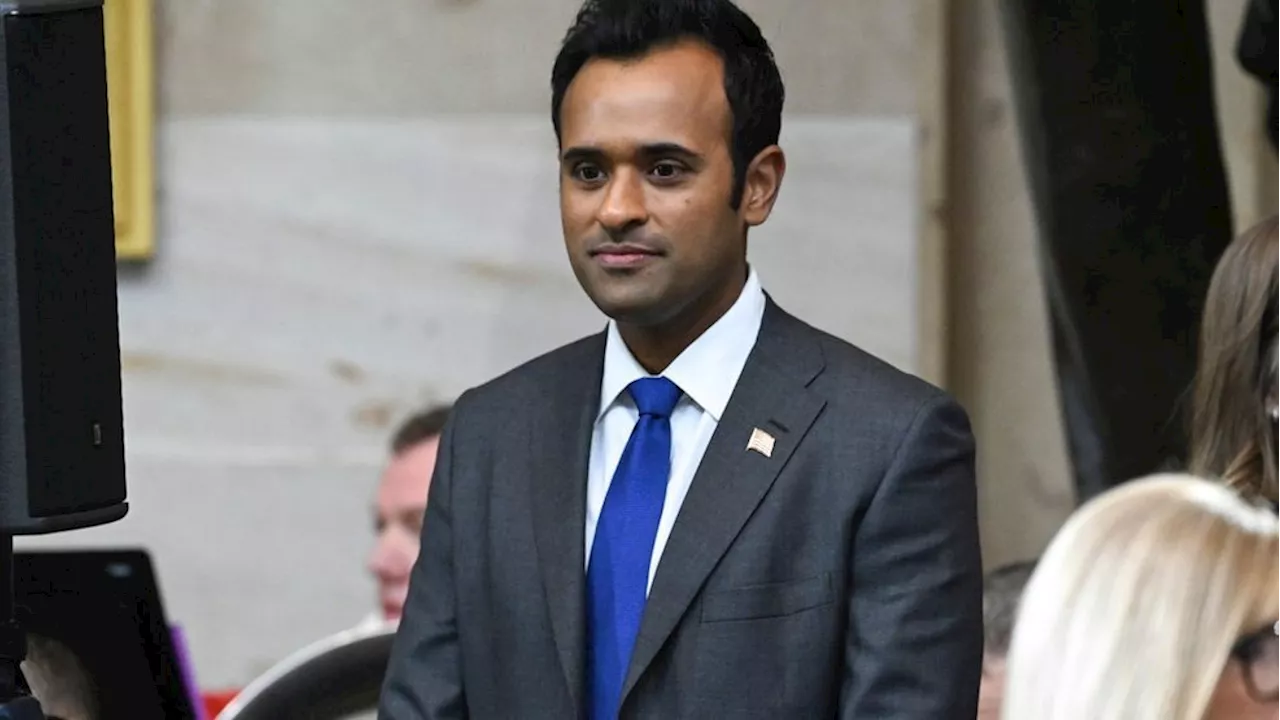 Vivek Ramaswamy Exits Trump's DOGE to Pursue Political AspirationsVivek Ramaswamy, a prominent conservative and biotech entrepreneur, is leaving President Donald Trump's Department of Government Efficiency (DOGE) to focus on a potential run for elected office.
Vivek Ramaswamy Exits Trump's DOGE to Pursue Political AspirationsVivek Ramaswamy, a prominent conservative and biotech entrepreneur, is leaving President Donald Trump's Department of Government Efficiency (DOGE) to focus on a potential run for elected office.
Read more »
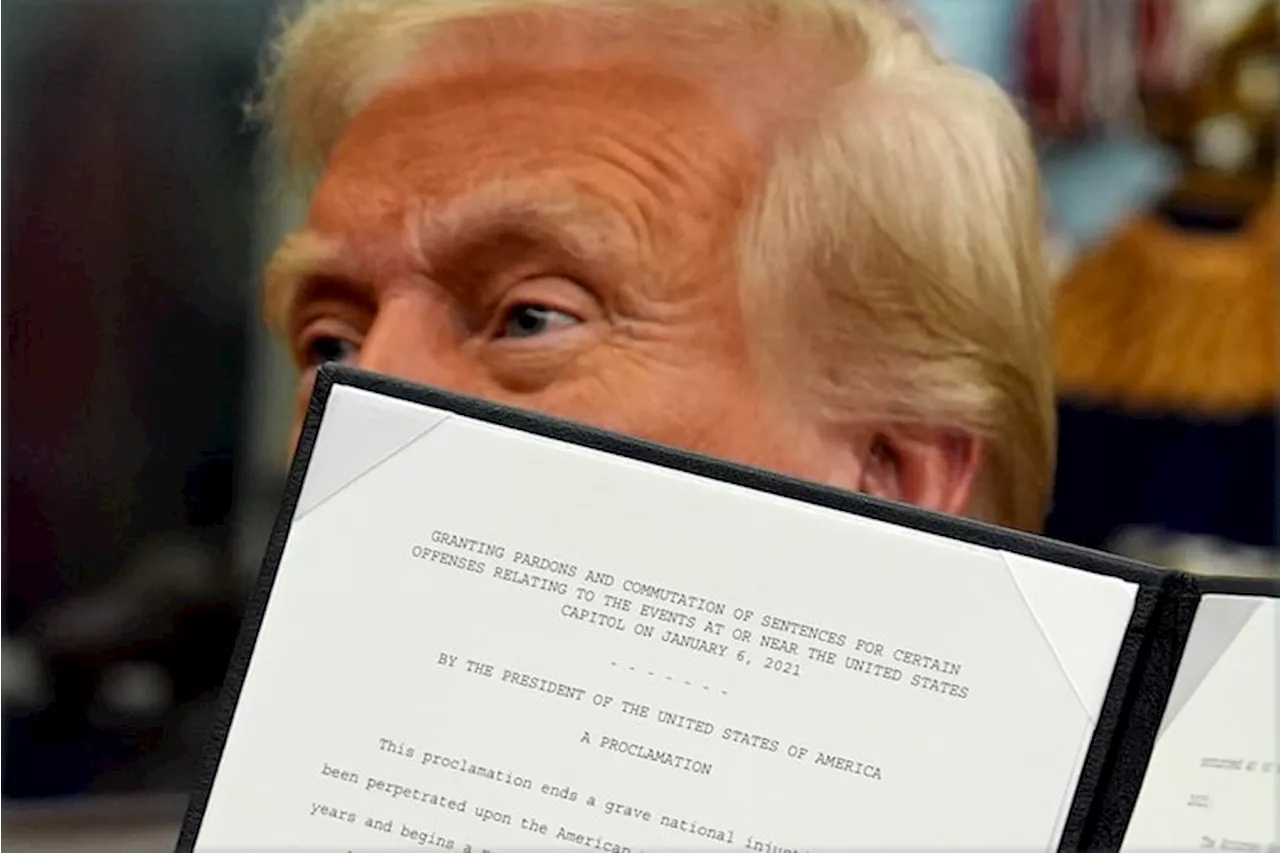 Trump's January 6th Pardons Echo Authoritarian PlaybookThis article analyzes President Trump's pardons of individuals convicted in the January 6th Capitol attack, drawing parallels to the tactics of authoritarian leaders worldwide. It argues that Trump's actions, including rewriting history and silencing dissent, mirror those of figures like Vladimir Putin and Viktor Orbán.
Trump's January 6th Pardons Echo Authoritarian PlaybookThis article analyzes President Trump's pardons of individuals convicted in the January 6th Capitol attack, drawing parallels to the tactics of authoritarian leaders worldwide. It argues that Trump's actions, including rewriting history and silencing dissent, mirror those of figures like Vladimir Putin and Viktor Orbán.
Read more »
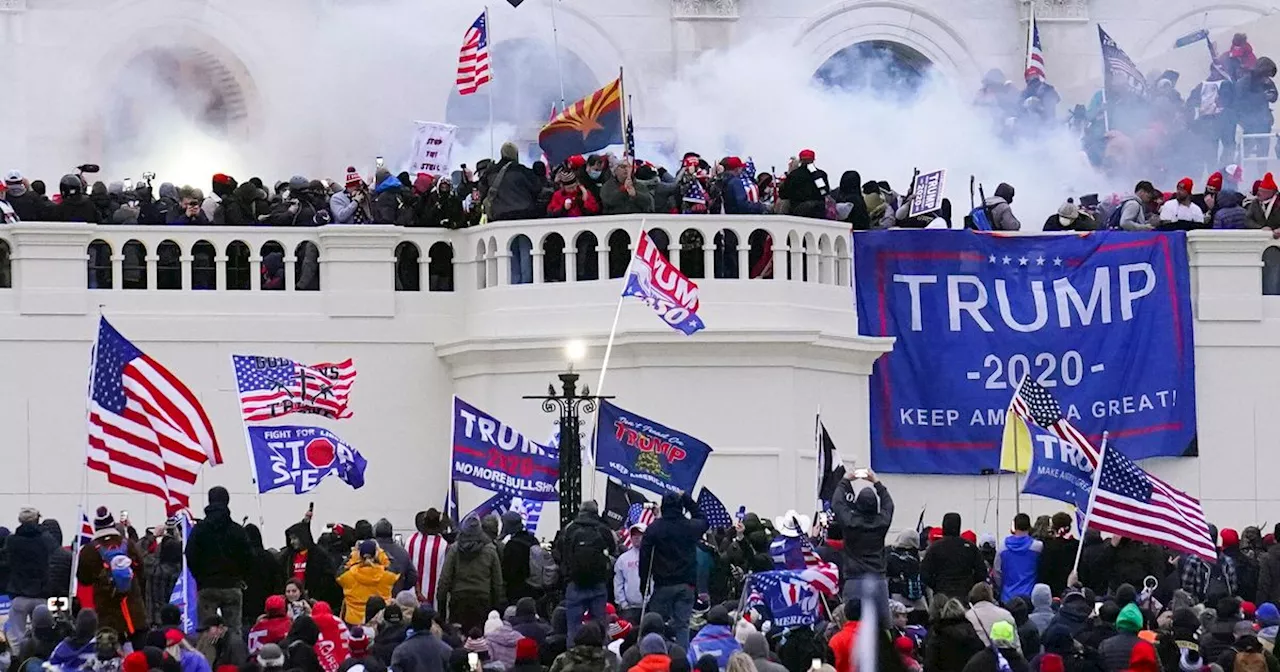 Trump Embraces Authoritarian Tendencies in Second TermThe news highlights President Donald Trump's early actions in his second term, focusing on his controversial executive orders, appointments of loyalists, and attempts to retaliate against political opponents. The article criticizes these actions as a dangerous move towards authoritarianism and a threat to democratic norms.
Trump Embraces Authoritarian Tendencies in Second TermThe news highlights President Donald Trump's early actions in his second term, focusing on his controversial executive orders, appointments of loyalists, and attempts to retaliate against political opponents. The article criticizes these actions as a dangerous move towards authoritarianism and a threat to democratic norms.
Read more »
